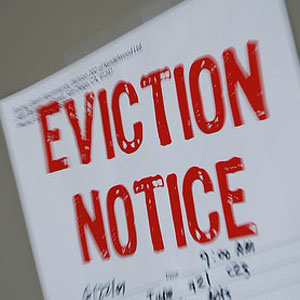Get Your Questions Answered - Call Me For Your Free, 20 Minute Phone Consultation: (732) 365-3299

Whether you are a landlord or a tenant, you have probably heard of Landlord Tenant Court. You probably even know someone who has been to court on a landlord tenant matter. Since New Jersey has such a large amount of rental units, including residential housing and commercial space, the Landlord Tenant Court is a very active place. Each county has its own division of the civil court system devoted entirely to handling disputes between landlords and tenants.
In the landlord tenant department of the court, cases are brought by the landlord. This section of the court system was set up for the purpose of landlords to sue tenants for not paying rent or for breaching their lease agreement or for violating the law in some way. Tenants are not permitted to sue their landlords in this section of the court system. If you are a tenant who wants to bring a lawsuit against your landlord, this is not the correct place for you to do that. You will have to file your complaint in a different department. The sole purpose of the Landlord Tenant Court is to determine whether a tenant will remain in the rental unit or be evicted. That means that the outcome of each case will either be that the case is dismissed, and the tenant will remain in the unit, or the Court will enter a judgment for possession in favor of the landlord allowing the landlord to have the tenant evicted by a court officer.
The overwhelming majority of the cases that are brought before the Landlord Tenant Court involve landlords who are suing their tenants for unpaid rent. Each month, throughout the State of New Jersey, tenants fail to pay their monthly rent on time or at all. This happens with residential tenants who live in apartment buildings or private homes. It also happens with commercial tenants who lease offices, warehouses, stores or entire buildings, among other types of properties. Additionally, landlords may sue tenants who breach their lease agreement in some way. Perhaps the tenant has a pet, but the lease has a no pet clause. Maybe the tenant is noisy and is disturbing other tenants who live in the building. Sometimes, tenants will allow additional people to live with them in their apartment without the landlord’s permission. These are just a few examples of reasons why a tenant may be brought to court by a landlord.
If you are a landlord of either residential or commercial space, and you are wondering whether you can enforce your lease agreement, collect unpaid rents or remove a tenant who is breaching its lease agreement or the law in some way, please contact this office for additional information. We look forward to speaking with you.
*The information in this blog posting is for general information purposes only. Nothing in this blog or associated pages, documents, comments, answers, emails, or other communications should be taken as legal advice for any individual case or situation. The information in this blog is not intended to create, and receipt or viewing of this information does not constitute, an attorney-client relationship.

The Law Office of Eric B. Hannum Esq., LLC prides itself
on the experience and the ability to handle a wide
range of legal issues - Call Us Now - (732) 365-3299